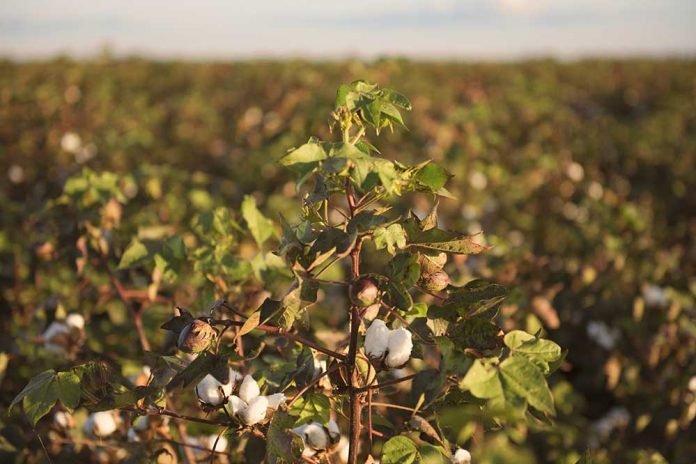Performance fabric manufacturer Ventile has made further progress in an ongoing joint venture that supports organic and regenerative cotton farming in Egypt.
Ventile is a high-performance fabric manufacturer known for producing a tightly woven, 100% cotton fabric that is breathable, durable, and weatherproof. It was originally developed in the UK during World War II for RAF pilots’ immersion suits. Ventile fabric is made from long-staple cotton fibers that swell and interlock when they come into contact with water, creating a barrier that is highly effective at repelling water and wind.
Ventile fabric is popular in outdoor and performance clothing due to its natural properties, including being windproof, highly breathable, and comfortable to wear. It is also often used in garments where protection from the elements is essential, such as jackets, trousers, and outerwear. Additionally, Ventile fabric is known for its sustainability, as it is made from natural materials and is biodegradable.
Ventile fabric has been used in various famous expeditions and adventures, including Sir Edmund Hillary and Tenzing Norgay’s ascent of Mount Everest in 1953. Today, Ventile continues to be a popular choice for outdoor enthusiasts, adventurers, and those seeking high-quality, weatherproof clothing.
The programme, on which Ventile is working with a sustainable agriculture agency called the Egyptian Biodynamic Association (EBDA), launched in 2023. Now the partners have announced the first findings of an initiative to create a chemical-free soil environment at two farms in the Nile Delta region, Salsol Farm and Ramadan Kamel Farm.
Independent lab results show significant changes in the composition of the soil structure at both farms, including improvements in texture, soil stability, and aggregation. In a bid to establish self-sustaining farms using biodynamic principles, the land has been cultivated to improve soil health, as observed through enhancements in soil organic matter, microbial activity, and overall soil fertility.
The primary objective of the project is to support the production of high-quality, ethical and regenerative-grown organic cotton to meet the increasing demand in the textile industry. Early indications show that the long-term productivity and quality of cotton from the farms are expected to increase significantly, with cotton yield increasing by 157 kilos per acre in the first year.



